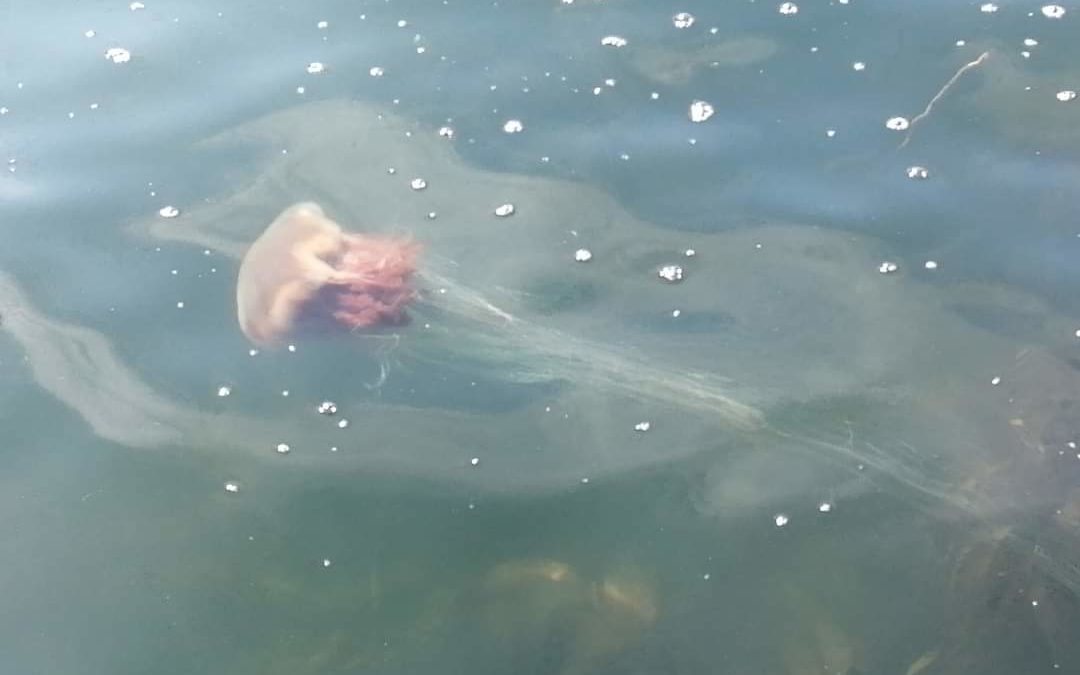MOST stings from sea creatures in the UK are not serious and can be treated with first aid. Some jellyfish don’t sting at all. Sometimes, however, you may need to go to hospital.
If you do get stung and there is a life guard on the beach, they just be your first port of call.
If there is no lifeguard then you can take these steps to treat the sting:
- Rinse the affected area with seawater (not fresh water)
- Remove any spines from the edge of the skin using tweezers or the edge of a credit card – remember you will need to push down a little first before scraping otherwise you risk cutting the top off
- Soak the area in very warm water (as warm as can be tolerated) for at least 30 minutes – use hot flannels or towels if you cannot soak it
- Take painkillers like paracetamol or ibuprofen.
DO NOT:
- use vinegar
- urinate on the sting
- apply ice or a cold pack
- touch any spines with your bare hands
- cover of close the wound
Go to a minor injuries unit if you have:
- severe pain that is not going away
- been stung on the face or genitals
- been stung by a stingray
Go to the ED or call 999 if you’ve been stung and have:
- difficulty breathing
- chest pain
- fits or seizures
- severe swelling around the affected area
- severe bleeding
- vomiting
- lightheadedness or loss of consciousness
Symptoms of sea creature stings:
The main symptoms of sea creature stings are intense pain where you are stung and an itchy rash.
Jellyfish and Portuguese man-of-war stings can also cause circular areas on the skin (welts)

